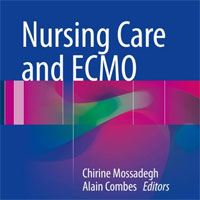Tag: research
What did the ALPS trial results really show?
The trial pitted amiodarone against lidocaine with a saline control group for the termination of shock-resistant ventricular tachycardia and ventricular fibrillation... read more

Gut bacteria may affect obesity risk in youth
Children and adolescents who are obese have different populations of gut microbes compared with youths of a normal weight, new research finds.... read more

High Prevalence of Depression Following ICU Stays
Research shows people discharged from intensive care are at a high risk for developing depression, and a new study suggests that number is as high as 1 in 3.... read more

Supporting clinical research with an intensive-care database
Crowdsourcing clinical data from some 40,000 patients could vastly improve research and critical-care decisions.... read more

New biomarker test helps detect autoimmune-induced neuropsychiatric disorders
A research team from the University of Oklahoma Health Sciences Center, led by Madeleine Cunningham, Ph.D., in conjunction with the National Institute of Mental Health, has developed the first-of-its-kind biomarker test to... read more

Review: Stem Cell Tx for Heart Failure Not Ready Yet
Heterogeneity in methods for trials of stem cell therapies for heart failure are a big reason for the inconsistent results seen to date, a review article suggested.... read more

Driving Risk Factors Behind Ventilator-Associated Pneumonia
Ventilators that help patients breathe can be life-saving devices; however, they also have the power to cause deadly ventilator-associated pneumonia (VAP).... read more

Study Finds Two Ways to Reduce HAIs
The risk for hospital-acquired infections (HAIs) is reduced by conducting fewer patient transports and limiting urinary catheter use, according to a study conducted at Overlook Medical Center in Summit, New Jersey.... read more

Blood lactate concentrations predict ICU deaths
Blood lactate concentration is a strong predictor of mortality, more so than other measures of acidity in the blood, according to Australian researchers.... read more

Deworming drugs could treat deadly C. difficile infection
A class of drugs used to deworm animals may have the potential to treat even the deadliest strains of Clostridium difficile in humans, new study suggests.... read more

VIB-Ghent University research provides insights into septic shock
Researchers at VIB and Ghent University have discovered an important mechanism of sepsis, an overreaction of the body's immune system to an infection.... read more

Researchers map links between salmonella, sepsis
Research by industrial engineering and biology researchers marks a significant milestone in the battle against sepsis, the second highest cause of death in intensive care units in the U.S.... read more

Latest sepsis research for health care providers
The syndrome, caused by "the body's overwhelming and life-threatening response to infection, which can lead to tissue damage, organ failure, and death," can be difficult to predict, diagnose and treat, according... read more

Depression affects one in three patients after intensive care
Almost one in three people discharged from hospital intensive care units (ICUs) has clinically important and persistent symptoms of depression, according to research published in the journal Critical Care Medicine.... read more








